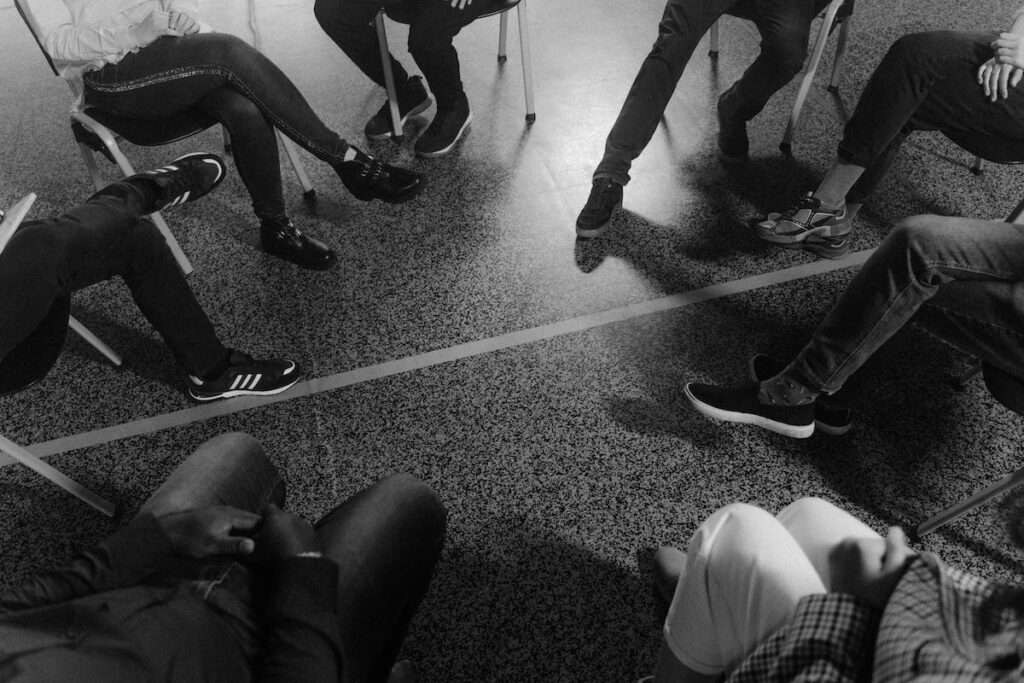
How Baltimore’s Recovery Movement Thrives on Community
Baltimore is a city with deep roots and strong community ties, and those qualities are at the heart of its growing recovery movement. While professional treatment plays a critical role in overcoming addiction, the long-term success of recovery often depends on human connection. In particular, peer support in Baltimore recovery has become a powerful tool in helping individuals heal—not just from substance use, but from the isolation, trauma, and disconnection that often accompany it.
In this post, we’ll explore the ways lived experience, group therapy, mutual aid, and community-based organizations are empowering people across Baltimore to recover and rebuild.
What Is Peer Support?
Peer support refers to emotional and practical support provided by individuals who have lived through addiction and recovery themselves. These peers are not just helpers—they’re proof that recovery is possible. Their insight into the daily challenges of sobriety makes them uniquely equipped to offer guidance, understanding, and motivation to others who are just starting out.
Peer support can take many forms: one-on-one mentorship, group facilitation, outreach work, or even formal roles within treatment programs. In Baltimore, peer recovery specialists are often employed in hospitals, clinics, and nonprofit organizations to bridge the gap between professional services and personal healing.
Why Peer Support Matters in Baltimore
Baltimore’s neighborhoods have long dealt with systemic challenges such as poverty, racial inequality, and limited access to healthcare. These factors can deepen the impact of addiction, making it harder for individuals to trust institutions or believe that recovery is within reach.
Peer support offers an antidote to that hopelessness. When someone from the same community says, “I’ve been where you are,” it resonates in a way clinical advice often cannot. Peer supporters understand the local context—whether it’s the pain of generational trauma or the daily grind of surviving in a disinvested neighborhood.
This shared understanding builds trust, which is essential in any healing journey. It also allows peer supporters to advocate more effectively for the needs of their communities within larger treatment systems.
The Power of Group Therapy and Shared Experience
While individual therapy is a cornerstone of many treatment plans, group therapy offers a unique space for growth through shared experience. In group settings, individuals learn to voice their struggles, celebrate their victories, and offer support to others on a similar path.
Group therapy sessions in Baltimore often reflect the diversity and strength of the city. Facilitated by trained clinicians or peer specialists, these groups can focus on everything from relapse prevention and anger management to trauma processing and relationship healing. The mutual exchange of stories and strategies reinforces the idea that no one has to recover alone.
Mutual Aid and Community-Based Recovery Models
Mutual aid differs from traditional treatment in that it emphasizes shared responsibility and horizontal support rather than professional hierarchy. Organizations like Narcotics Anonymous (NA), Alcoholics Anonymous (AA), and community-led recovery circles embody this principle. In Baltimore, mutual aid meetings are held every day across the city, offering safe and inclusive spaces for those in all stages of recovery.
These gatherings are free to attend and often held in local churches, community centers, or libraries. They are especially valuable for people transitioning out of formal treatment programs who still need daily reinforcement of their recovery goals. The sense of belonging that comes from mutual aid is a vital counterweight to the loneliness that can trigger relapse.
The Community’s Role in Long-Term Recovery
Addiction recovery does not end after detox or outpatient care. Sustaining sobriety requires ongoing support, stable housing, meaningful work, and a sense of purpose. Community plays a vital role in each of these areas.
Baltimore-based recovery centers, nonprofit groups, and housing programs often collaborate to provide wraparound support. This can include job training, peer-led education classes, and community events that celebrate milestones in recovery. These efforts aren’t just about staying sober—they’re about building a new life, rooted in connection and contribution.
Neighborhoods that invest in recovery-friendly spaces—like drop-in centers, community gardens, and sober living homes—see greater success among residents attempting to overcome addiction. They also benefit from reduced crime rates, improved public health, and stronger civic engagement.
How Unlimited Bounds Elevates Peer Support and Community Care
At Unlimited Bounds, we recognize that recovery is not a solitary process. Our programs are designed to integrate peer support at every level of care, from Partial Hospitalization (PHP) and Intensive Outpatient (IOP) to long-term outpatient services. Clients are matched with peer recovery specialists who offer mentorship, support, and advocacy throughout the treatment journey.
We also offer group therapy sessions that encourage honest dialogue and community healing. Participants leave not only with tools for sobriety, but with a support system of people who truly understand them. Many of our alumni return to mentor others, continuing the cycle of healing and resilience that is so critical in Baltimore.
For those facing mental health challenges alongside addiction, our dual-diagnosis services ensure that both issues are addressed together. Mental health stigma is still strong in many communities, but peer support helps break down those barriers and show that healing is possible—and that nobody is alone.
A Vision for Baltimore’s Recovery Future
The future of addiction recovery in Baltimore lies in stronger networks of peer support, deeper community engagement, and a commitment to accessible, inclusive care. These aren’t just buzzwords—they’re the foundation for meaningful change in a city that has seen more than its share of struggle.
Unlimited Bounds is proud to be a part of this movement, not just as a treatment provider but as a community partner. Through collaboration, compassion, and the wisdom of lived experience, we believe Baltimore can continue to rise—one recovery story at a time.
